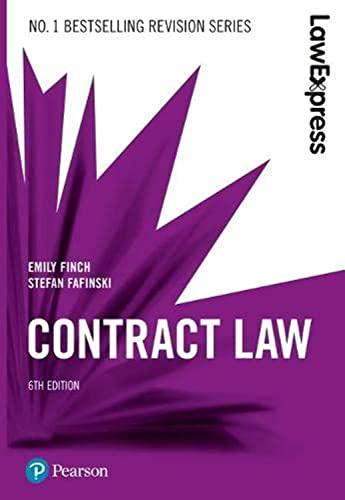'dgl'CCIIlCIlL, Wllll LIlC IIIVCIILUI'y 051115 llSLCLl d5 UUlldLCIl. For at least one year, Rita was able to make payments on both obligations from the proceeds of the business. Unfortunately, due to a low-carb diet trend the factory eliminated 50% of its workforce over a six-month period. As a result, Rita's business 10st customers and began to operate at a loss. It became unable to pay its obligations to both the bank and XYZ and ended up defaulting on both loans. Both secured parties sought to repossess the inventory from Rita's store, sell the inventory, and then hold Rita personally liable for any deciency. Rita, aware that she might be held personally responsible for the debt, considered declaring bankruptcy. 1. Is Nations First Bank's interest secured? 2. Is XYZ Wholesale Suppliers (XYZ) interest secured? 3. Which secured party has priority under UCC Article 9? 4. Is there a surety or guarantor on the loan? If yes, who is it? 5. Can the secured party with a priority interest seek to repossess the inventory? 6. Assume that the shoe store had sold some inventory to Meredith, a college student. Would the secured parties be able to repossess the shoes from Meredith? 7. What affect would Rita's ling of Chapter 7 bankruptcy have on the UCC Article 9 foreclosure process? 8. Assume that Rita defaulted on her obligation to XYZ but made one late payment to the bank on December 1, what would happen to the late payment? Discuss preferential and fraudulent transfers. 9. Assume the role of a business consultant. What advice would you give Rita? Business Law Secured Transactions Weekly Exercise Instructions: Answer the questions and submit online via Webcourses before the start of class. No late or incomple_te assignment are accepted. Answers can be written out or bulleted/outlined. (Estimated time to complete: 1 hour). Resource: The Legal Environment of Business; A Managerial Approach: T beam to Practice 3''1 Edition Chapters 20 plus online research to fill knowledge gaps. Rita is the sole owner of Everyday Shoe Store, LLC, a small business located in a suburban working class community. She inherited the business from her Aunt Marge three years ago. Up until then, business had been slow because of the declining economy. Lately, however, business has picked up, and revenues have doubled because of an increase in employees and output at the neighboring Merita Bread Factory. As a result of the increase in business, Rita hired two new full-time employees but was short on the funds necessary for expansion of the business. Rita was able to obtain a loan from Nations First Bank, but the bank required a security interest and that Rita be personally liable on the business note. The language of the security agreement contained the following clause: \"The note is secured by the inventory of Everyday Shoe Store, currently owned and any later acquired inventory, until said note is fully paid and satised.\" The bank immediately perfected the security interest by ling a nancing statement. Rita decided to purchase inventory from XYZ Wholesale Suppliers (XYZ) on credit a few weeks after obtaining the loan from the bank. She took possession of the inventory on April 16. XYZ required that she sign a promissory note and security agreement, with the inventory being listed as collateral. For at least one year, Rita was able to make payments on both obligations from the proceeds of the business. Unfortunately, due to a low-carb diet trend the factory eliminated 50% of its workforce over a six-month period. As a result, Rita's business 10st customers and began to operate at a loss. It became unable to pay its obligations to both the bank and XYZ and ended up defaulting on both loans. Both secured parties sought to repossess the inventory from Rita's store, sell the inventory, and then hold Rita personally liable for any deciency. Rita, aware that she might be held personally responsible for the debt, considered declaring bankruptcy








